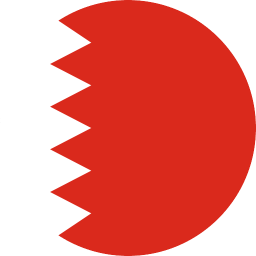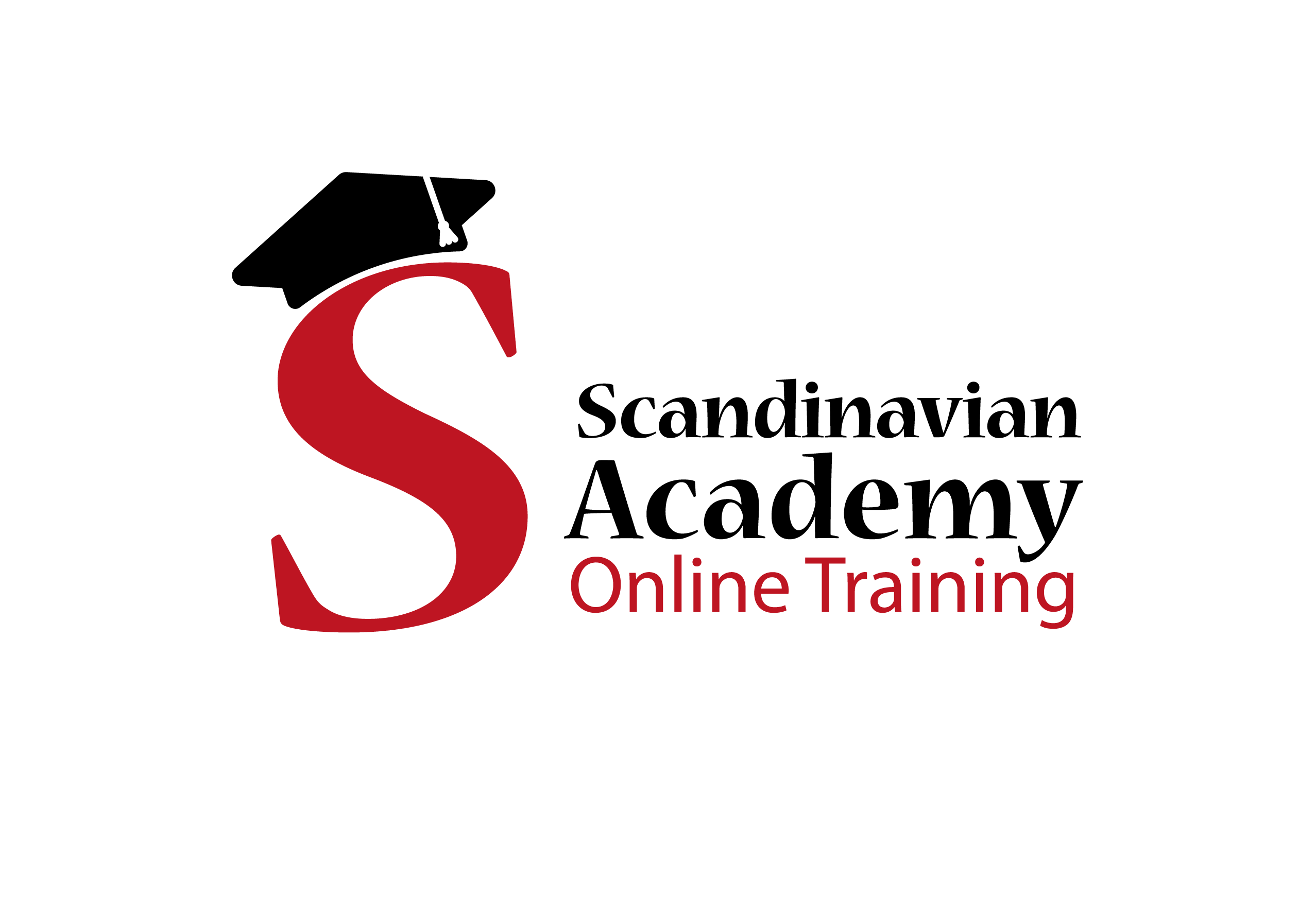The Scandinavian Academy for Training and Development adopts the latest scientific and professional methodologies in training and human resource development, aiming to enhance the efficiency of individuals and organizations. Training programs are delivered through a comprehensive approach that includes:
- Theoretical lectures supported by PowerPoint presentations and visual materials (videos and short films).
- Scientific evaluation of participants before and after the program to measure progress and knowledge acquisition.
- Brainstorming sessions and practical role-playing to simulate real-life scenarios.
- Case studies tailored to align with the training content and participants work nature.
- Assessment tests conducted at the end of the program to evaluate the achievement of training objectives.
Each participant receives the training material (both theoretical and practical) in printed form and saved on a CD or flash drive. Detailed reports, including attendance records, final results, and overall program evaluations, are also provided.
Training materials are prepared professionally by a team of experts and specialists in various fields. At the end of the program, participants are awarded a professional attendance certificate, signed and accredited by the Scandinavian Academy for Training and Development.
Program Timings:
- 9:00 AM to 2:00 PM in Arab cities.
- 10:00 AM to 3:00 PM in European and Asian cities.
The program includes:
- A daily buffet provided during the sessions to ensure participants comfort.
Introduction
Engineering and maintenance projects call for complex engineering and business tradeoffs with due regard to compliance with regulatory and code requirements. A sound understanding of the key aspects of project objectives, drivers, constraints, and profitability is crucial for the success of a project. Fast-track schedules demand faster, more accurate technical and economic decisions earlier in the design process, when engineers and business managers least understands project costs. Consequently, many process facilities cost more than they should.
Using the appropriate evaluation techniques and skills, engineering and economic decisions can be reached faster, more accurately, and with greater confidence, avoiding costly project delays and potential rework.
In cases where there is competition for resources between several technically viable projects, cost and schedule factors play a key role in ranking the projects based on their profitability. Similarly, costs and schedules have a major impact on the selection of the most cost effective maintenance option from among several alternatives such as repair/replace or long/short term repairs.
The course covers the basics of project development and management. It begins with Project initiation and development phases and progresses through the project execution and control phase. It highlights the cost considerations and the degree of influence on costs in each phase.
Technical viability of a project, whether it involves new facilities or a repair method, must be ensured before the economic evaluation starts. The course presents the technical fundamentals and provides guidelines and procedures for conducting technical evaluations.
The time value of money and life cycle cost concepts are essential aspects of economic evaluations. These topics will be covered in detail with the use of a number of worked examples.
The course will comprise lectures and workshops that incorporate a number of short exercises to reinforce the key techniques discussed to maximize your benefits. Additionally, an optional “Question and Answer” period will provide you with opportunities to get expert answers on your specific questions.
Objectives
To provide you with:
- A fundamental understanding of financial and accounting principles, terms, techniques, and best practices,
- The tools you need to perform financial evaluations and justify your own project to corporate management, and
- A fundamental understanding of the technical aspects that should be considered in technical evaluations of projects to ensure their technical viability, mechanical integrity and compliance with applicable regulations, codes, and standards.
Training Methodology
- The course combines presentations and discussions of topics covered with relevant examples.
- It combines sound engineering and economic principles, methods, and best industry practices and enforces the learning’s with Case Studies and Question & Answer workshops to maximize the benefits to the participants. Participants will work in groups to perform practical technical and economic evaluations.
- Participants will be provided with comprehensive course notes and copies of presentation material that will be very valuable for detailed study and future reference.
Organizational Impact
- The company will be able to implement fit-for-purpose projects solutions that are both technically sound and cost-effective.
- Technical and financial resources can be allocated to projects based on their ranking and cost effectiveness.
- Heightened business focus among staff will result in operational and financial performance improvement
Personal Impact
- Participants will enhance their understanding of the time value of money and life cycle cost principles.
- Participants will learn how to perform key project analyses including technical, economic, and environmental evaluations.
- Participants will add to their ability to evaluate the economic and technical impacts of alternative maintenance strategies and methods on maintenance projects and to select the optimum alternative for the specific application while complying with regulatory requirements.
- Participants will gain a working knowledge of the various cost estimating methods and how to prepare timely cost estimates that are fit for purpose.
- Participants will broaden their technical knowledge base and understand the economic impact of their technical decisions leading to increased contributions in project profitability, technical integrity and reduced downtime.
- Participants will enhance their competence and productivity thereby improving their performance level and making additional value added contributions to their organizations.
Who Should Attend?
The course is pitched to appeal to professionals with a large range of technical and industrial backgrounds and varying levels of experience seeking to broaden their skills and abilities in economic and technical valuation techniques required across industry.
Design, project, maintenance, and plant engineers, supervisors and professionals in the manufacturing, chemical processing, petrochemical, power, food, and other process industries. New graduates will benefit within the short period of two days from the extensive practical experience of the instructor.
The Scandinavian Academy for Training and Development is committed to hosting all training programs in dedicated and well-equipped hotel facilities specifically designed for conducting and delivering training sessions, unless explicitly stated otherwise on our website. Participants will be notified of the program venue within 7 to 21 days prior to the programs start date, based on the Academys assessment and the programs circumstances. The Scandinavian Academy for Training and Development emphasizes that it holds no responsibility for any force majeure events that may prevent the program from being held at the designated venue. Nevertheless, the Scandinavian Academy for Training and Development will make every effort to provide suitable alternatives and extend the necessary support to participants in the event of a venue change due to unforeseen circumstances.

 DUBAI (UAE)
DUBAI (UAE)
 Kuala Lumpur (Malaysia)
Kuala Lumpur (Malaysia)
 Amman (Jordan)
Amman (Jordan)
 Jakarta (Indonesia)
Jakarta (Indonesia)
 Sharm ElShaikh (Egypt)
Sharm ElShaikh (Egypt)
 Amsterdam (Netherlands)
Amsterdam (Netherlands)
 Casablanca (Morocco)
Casablanca (Morocco)
 Paris (France)
Paris (France)
 Istanbul (Turkey)
Istanbul (Turkey)
 Singapore (Singapore)
Singapore (Singapore)
 Manama (Bahrain)
Manama (Bahrain)
 Washington (US)
Washington (US)
 Beirut (Lebanon)
Beirut (Lebanon)
 Barcelona (Spain)
Barcelona (Spain)
 Kuwait (Kuwait)
Kuwait (Kuwait)
 Budapest (Hungary)
Budapest (Hungary)
 Athens (Greece)
Athens (Greece)
 Copenhagen (Denmark)
Copenhagen (Denmark)
 Berlin (Germany)
Berlin (Germany)
 Brussels (Belgium)
Brussels (Belgium)
 Bucharest (Romania)
Bucharest (Romania)
 Zurich (Switzerland)
Zurich (Switzerland)
 Hamburg (Germany)
Hamburg (Germany)
 Marrakesh (Morocco)
Marrakesh (Morocco)
 Beijing (China)
Beijing (China)
 Doha (Qatar)
Doha (Qatar)
 Bangkok (Thailand)
Bangkok (Thailand)
 Muscat (Oman)
Muscat (Oman)
 Toronto (Canada)
Toronto (Canada)
 Cyprus (Larnaka)
Cyprus (Larnaka)
 Cairo (Egypt)
Cairo (Egypt)
 Madrid (Spain)
Madrid (Spain)
 London (UK)
London (UK)
 Stockholm (Sweden)
Stockholm (Sweden)
 Geneva (Switzerland)
Geneva (Switzerland)
 Vienna (Austria)
Vienna (Austria)
 Munich (Germany)
Munich (Germany)
 Prague (Czech Republic)
Prague (Czech Republic)
 Rome (Italy)
Rome (Italy)
 Hong Kong
Hong Kong
 Dublin (Ireland)
Dublin (Ireland)
 Auckland (New Zealand)
Auckland (New Zealand)
 Trabzon (Turkey)
Trabzon (Turkey)
 Florence (Italy)
Florence (Italy)
 Tunisia
Tunisia
 Marbella (Spain)
Marbella (Spain)
 New York (US)
New York (US)
 Tbilisi (Georgia)
Tbilisi (Georgia)
 Frankfurt (Germany)
Frankfurt (Germany)
 Malaga (Spain)
Malaga (Spain)
 Yerevan (Armenia)
Yerevan (Armenia)
 Baku (Azerbaijan)
Baku (Azerbaijan)
 Zagreb (Croatia)
Zagreb (Croatia)
 ONLINE
ONLINE
 Hurghada (Egypt)
Hurghada (Egypt)
 Warsaw (Poland)
Warsaw (Poland)
 Milan (Italy)
Milan (Italy)
 Chicago (US)
Chicago (US)
 Los Angeles (US)
Los Angeles (US)









 11 Jan
11 Jan
 Bucharest (Romania)
Bucharest (Romania)













 46700414979
46700414979